Encountering stereotypes when you have a disability is more commonplace than rain in Seattle. How people with disabilities respond to these stereotypes can be all over the board.
Some of us get angry, some of us are highly forgiving and then a few of us use each negative interaction as a way to change people’s minds; and we use humorous and clever ways to do it. Hey, someone has to do the dirty work.
If you’re sick of hearing the same stereotypes, then it may be time for you to start employing clever ways to deface disability stereotypes too. They won’t just change on their own. All of us need to lend our help to this cause. If you have no idea where to begin on your quest to change stereotypes, then this list is for you. Read on for 5 brilliant ways to deface disability stereotypes.
“Shouldn’t you be wearing more sensible shoes?”
Any woman who uses a mobility device or has an obviously affected gait has heard this line at least once. They see us rolling around with big crazy blinged out heels and the first thing that comes to mind, “Those are not sensible shoes someone with a disability should be wearing. ” Many in this world like to think people with disabilities should put practicality first, and fashion on the back burner. Well that’s no fun.
Some of us even take it a step further and view our “unsafe” fashion choices a danger to the community. “What if the woman wearing heels not walking 100% perfect fell over into the subway tracks?” This is what a lot of people think. But what they don’t know is that we have it under control. We are all highly aware of our limitations. So the next time you’re out in public wearing fabulous sky high shoes and someone says something along these lines, your response should always be, “Fashion is pain my friend, but I appreciate your concern.”
When they address the person with you–not you.
A lot of people with disabilities experience this one. If you haven’t yet, you probably just didn’t know it was happening. The rudeness – a lot of able-bodied people simply feel uncomfortable around people with disabilities and talk to the person with us, not us. I must say, not being spoken to directly is one of my biggest living with a disability pet peeves.
The next time you’re out and someone addresses who is with you, not you directly, it’s almost necessary you say something since this stereotype is so mean. I like to say, “Hello there <grin>, you can share your thoughts with me as well,” then smile and continue direct eye contact until they say something in response. Many might blush and be too embarrassed to say anything, but imagine if we all said this whenever it happens; just think how many minds we could change.
“Wow you drink, smoke and have sex?”
A big stereotype that’s always bothered me is the one where they think we’re not sexual beings and don’t know how to have a good time. The truth however is that we like to party and are often better kissers than anyone they’ve ever met. A lot of us smoke, drink and whatever else often. I’ve gotten a lot of shocked responses whenever anyone find this out. So many people simply think people disabilities are all serious all the time. But if you’ve ever intently known someone with a disability, you know how wrong this is. So the next time someone acts shocked when they catch wind of your sexual and partying adventures, take it in stride and say something incredibly succinct: “You better believe it and I’m very oral too.” It’s time the masses saw we do not by default live a G-rated lifestyle.
“People with disabilities are lazy.”
A lot of people tend to discriminate against people with disabilities because they resent us for receiving all the benefits that come our way. SSI, SSDI, Medicaid, they see us as succubae. The worst is when they call people with disabilities lazy, thinking most of us are unemployed by choice. The truth however is that living with a disability can be immensely taxing, even if your mind wasn’t affected.
If I ever hear anyone say this even in an overheard conversation, I always feel the need to say something. “Try operating on a daily basis not moving your legs or fingers with low energy levels, then get back to me.”
Dancing makes us sad.
When we’re at an event that has dancing, people see us and think how sad we must be. It’s easy to see why people think this, but many of us don’t always get sad when we see dancing going on. In fact, many of us still dance in our own way, not letting a little thing called a disability stop us. I still love to move what I got even if it makes people uncomfortable. When I’m out on a dance floor and I get any shocking comments, I simply say, “Dancing happens in the spirit, and all of us dance in our own way.”
These stereotypes are just the tip of the iceberg. So many of us want to live normal, adjusted lives yet these stereotypes can make it impossible. Still clinging to your disability stereotypes knowing the facts? Hopefully not any longer.
Check out a UK project designed to eliminate disability stereotypes, one user-submitted postcard at a time: Postcards from the Edges

Find your perfect Wheelchair Van
Select from thousands of wheelchair vans for sale from hundreds of nationwide dealers
The Mobility Resource has one of the largest selections of Dodge, Toyota, Chrysler, Honda, Ford, Chevrolet wheelchair vans
View All Wheelchair Vans



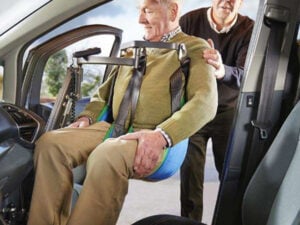





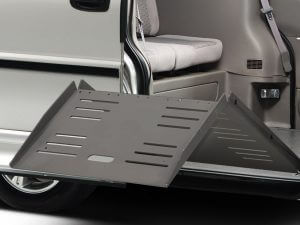

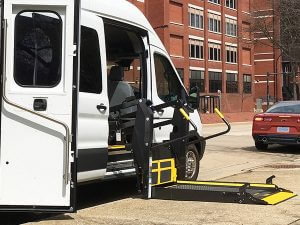


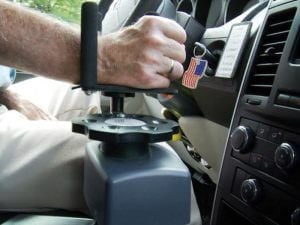

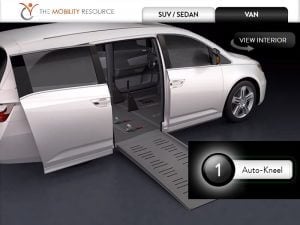




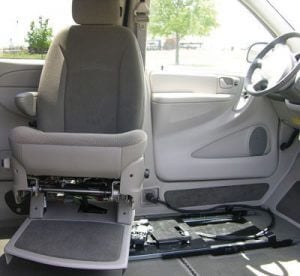
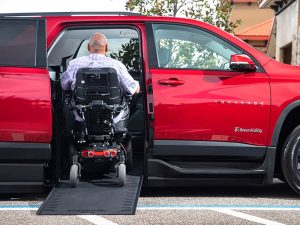
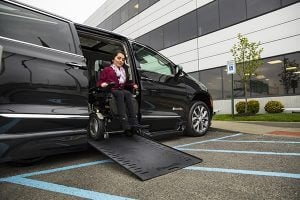

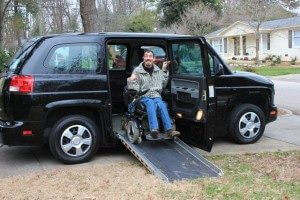







Tweet
Share https://www.themobilityresource.com/blog/post/5-clever-comebacks-to-deface-disability-stereotypes/